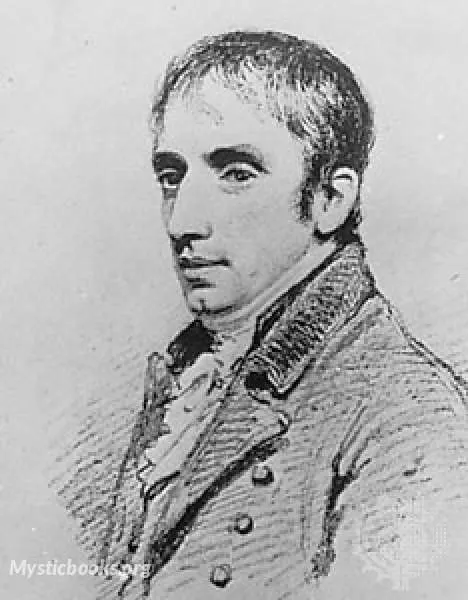
Timeline
Title
Country/Nationality
William Wordsworth
William Wordsworth was an English Romantic poet who, with Samuel Taylor Coleridge, helped to launch the Romantic Age in English literature with their joint publication Lyrical Ballads (1798).
Wordsworth's magnum opus is generally considered to be The Prelude, a semi-autobiographical poem of his early years that he revised and expanded a number of times. It was posthumously titled and published by his wife in the year of his death, before which it was generally known as "the poem to Coleridge".
The second of five children born to John Wordsworth and Ann Cookson, William Wordsworth was born on 7 April 1770 in what is now named Wordsworth House in Cockermouth, Cumberland, now known as Cumbria, part of the scenic region in northwestern England known as the Lake District.
Wordsworth was taught to read by his mother and attended, first, a tiny school of low quality in Cockermouth, then a school in Penrith for the children of upper-class families, where he was taught by Ann Birkett, who insisted on instilling in her students traditions that included pursuing both scholarly and local activities, especially the festivals around Easter, May Day and Shrove Tuesday. Wordsworth was taught both the Bible and the Spectator, but little else. It was at the school in Penrith that he met the Hutchinsons, including Mary, who later became his wife.
After the death of Wordsworth's mother, in 1778, his father sent him to Hawkshead Grammar School in Lancashire (now in Cumbria) and sent Dorothy to live with relatives in Yorkshire. She and William did not meet again for nine years.
Wordsworth made his debut as a writer in 1787 when he published a sonnet in The European Magazine. That same year he began attending St John's College, Cambridge. He received his BA degree in 1791. He returned to Hawkshead for the first two summers of his time at Cambridge, and often spent later holidays on walking tours, visiting places famous for the beauty of their landscape. In 1790 he went on a walking tour of Europe, during which he toured the Alps extensively, and visited nearby areas of France, Switzerland, and Italy.
The year 1793 saw the first publication of poems by Wordsworth, in the collections An Evening Walk and Descriptive Sketches. In 1795 he received a legacy of £900 from Raisley Calvert and became able to pursue a career as a poet.
It was also in 1795 that he met Samuel Taylor Coleridge in Somerset. The two poets quickly developed a close friendship. For two years from 1795, William and his sister Dorothy lived at Racedown House in Dorset—a property of the Pinney family—to the west of Pilsdon Pen. They walked in the area for about two hours every day, and the nearby hills consoled Dorothy as she pined for the fells of her native Lakeland. She wrote,
"We have hills which, seen from a distance almost take the character of mountains, some cultivated nearly to their summits, others in their wild state covered with furze and broom. These delight me the most as they remind me of our native wilds."
Wordsworth, Dorothy and Coleridge travelled to Germany in the autumn of 1798. While Coleridge was intellectually stimulated by the journey, its main effect on Wordsworth was to produce homesickness. During the harsh winter of 1798–99 Wordsworth lived with Dorothy in Goslar, and, despite extreme stress and loneliness, began work on the autobiographical piece that was later titled The Prelude. He wrote a number of other famous poems in Goslar, including "The Lucy poems". In the Autumn of 1799, Wordsworth and his sister returned to England and visited the Hutchinson family at Sockburn. When Coleridge arrived back in England he travelled to the North with their publisher Joseph Cottle to meet Wordsworth and undertake a proposed tour of the Lake District. This was the immediate cause of the brother and sister's settling at Dove Cottage in Grasmere in the Lake District, this time with another poet, Robert Southey, nearby. Wordsworth, Coleridge and Southey came to be known as the "Lake Poets". Throughout this period many of Wordsworth's poems revolved around themes of death, endurance, separation and grief.
In 1802, Lowther's heir, William Lowther, 1st Earl of Lonsdale, paid the £4,000 owed to Wordsworth's father through Lowther's failure to pay his aide. It was this repayment that afforded Wordsworth the financial means to marry. On 4 October, following his visit with Dorothy to France to arrange matters with Annette, Wordsworth married his childhood friend Mary Hutchinson. Dorothy continued to live with the couple and grew close to Mary.
William Wordsworth died at home at Rydal Mount from an aggravated case of pleurisy on 23 April 1850, and was buried at St Oswald's Church, Grasmere. His widow, Mary, published his lengthy autobiographical "Poem to Coleridge" as The Prelude several months after his death. Though it failed to interest people at the time, it has since come to be widely recognised as his masterpiece.
Books by William Wordsworth
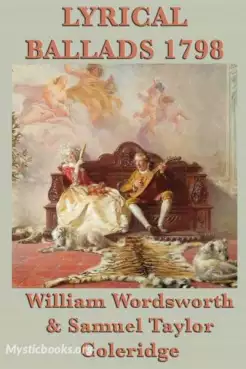
Lyrical Ballads (1798)
Lyrical Ballads, with a Few Other Poems is a collection of poems by William Wordsworth and Samuel Taylor Coleridge, first published in 1798 and generally considered to have marked the beginning of the English Romantic movement in literature. The imme...
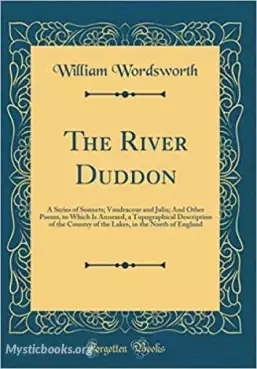
The River Duddon: A Series of Sonnets
Located in a part of Cumbria that was once part of Lancashire, the River Duddon rises in the high fells of the Lake District and flows for 25 miles through varied scenery before disappearing into the sands between Millom and Barrow-in-Furness. Wordsw...

The Excursion
The Excursion: Being a portion of The Recluse, a poem is a long poem by Romantic poet William Wordsworth and was first published in 1814. It was intended to be the second part of The Recluse, an unfinished larger work that was also meant to include T...
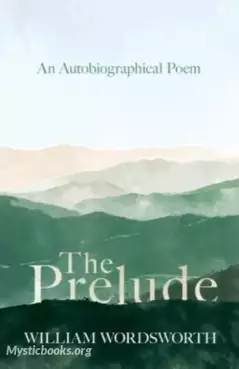
The Prelude
The Prelude or, Growth of a Poet's Mind; An Autobiographical Poem is an autobiographical poem in blank verse by the English poet William Wordsworth. Intended as the introduction to the more philosophical poem The Recluse, which Wordsworth never finis...
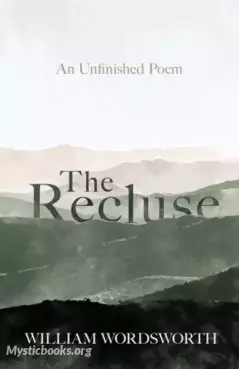
The Recluse
In the prefatory advertisement to the First Edition of the Prelude, 1850, it is stated that that poem was designed to be introductory to the Recluse, and that the Recluse, if completed, would have consisted of three parts. The second part is the Excu...
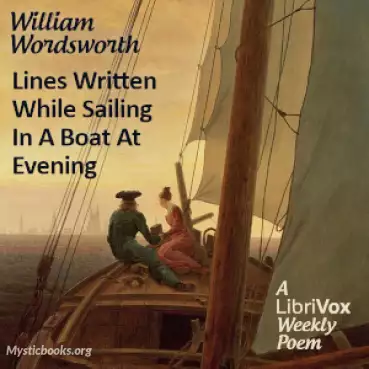
Lines Written While Sailing In A Boat At Evening
This title is scarcely correct. It was during a solitary walk on the banks of the Cam that I was first struck with this appearance, and applied it to my own feelings in the manner here expressed, changing the scene to the Thames, near Windsor. This,...
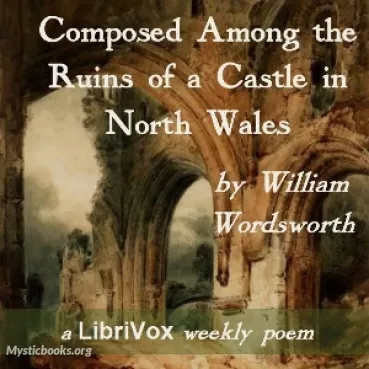
Composed Among the Ruins of a Castle in North Wales
Journey through the evocative verses of William Wordsworth's "Composed Among the Ruins of a Castle in North Wales," a poignant exploration of time's passage, the ephemeral nature of human achievements, and the enduring beauty of nature. Amidst the c...
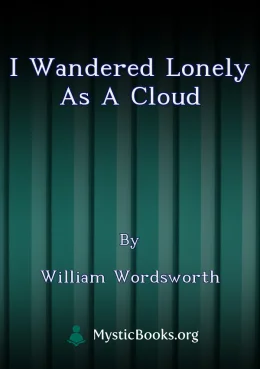
I Wandered Lonely as a Cloud
This was the weekly poetry project for 14 May 2006. Spring’s flowers come and go all too quickly, but Wordsworth’s classic poem reminds us that their blessings last.
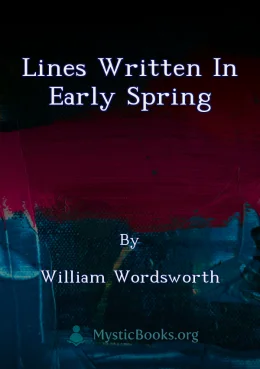
Lines Written in Early Spring
LibriVox volunteers bring you 15 different recordings of Lines Written in Early Spring by William Wordsworth. This was the weekly poetry project for the week of March 25th, 2007.
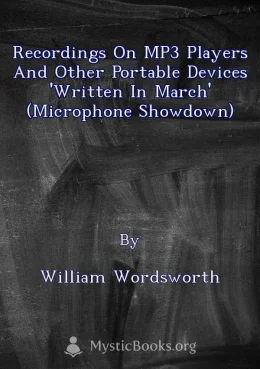
Recordings on MP3 players and other portable devices 'Written in March' (Microphone Showdown)
This is a project which will allow us to compare recording quality of different mp3 players and portable recording devices. Each reader has recorded the poem "Written in March" by William Wordsworth. For more information on actions taken on recording...
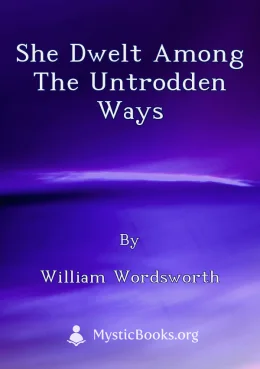
She Dwelt among the Untrodden Ways
LibriVox volunteers bring you 13 recordings of She Dwelt among the Untrodden Ways by William Wordsworth. This was the weekly poem for the week of May 4th, 2008.
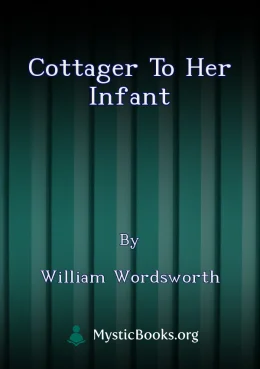
Cottager to Her Infant
This poem, 'Cottager to Her Infant' by William Wordsworth, is a testament to his love for nature and simplicity. It reflects the Romantic Movement's emphasis on emotion and imagination, and Wordsworth's deep connection to the landscape of the Lake Co...

Microphone Showdown 2
This book is a collection of recordings of William Wordsworth's poem "I Wandered Lonely As A Cloud," performed by various individuals using different recording devices. It serves as a guide for readers and listeners to evaluate and compare the sound...
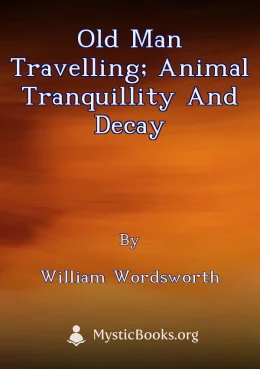
Old Man Travelling; Animal Tranquillity and Decay
'Old Man Travelling; Animal Tranquillity and Decay' is a short, contemplative poem by William Wordsworth, reflecting on the themes of aging, nature, and the passage of time. Written in the later years of his life, the poem showcases Wordsworth's char...
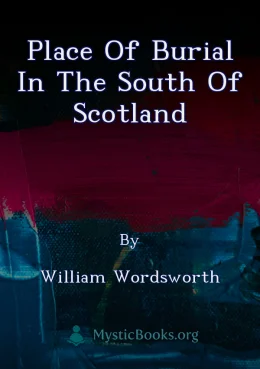
Place Of Burial In The South Of Scotland
This sonnet, part of Wordsworth's 'Ecclesiastical Sonnets', explores the themes of death, burial, and spirituality in the context of the Scottish landscape. The speaker contemplates the final resting place of individuals and reflects on the enduring...
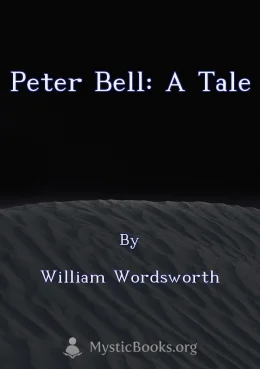
Peter Bell: A Tale
Peter Bell, a tale by William Wordsworth, presents a complex and morally ambiguous protagonist. Peter, initially depicted as a self-centered and materialistic individual, undergoes a profound transformation after a fateful encounter with a mule. This...
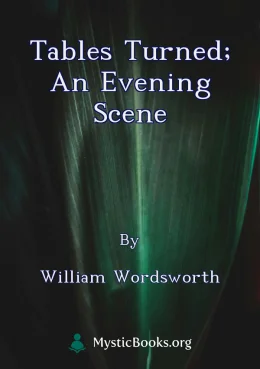
Tables Turned; an Evening Scene
This poem is an ode to the beauty and restorative power of nature. The speaker urges his friend to put aside his books for an evening and instead immerse himself in the beauty of the natural world. He encourages contemplation and a deep connection wi...

White Doe of Rylstone
Set against the backdrop of the Northern Rebellion of 1569, William Wordsworth's 'The White Doe of Rylstone' tells the tragic tale of a Catholic family whose patriarch joins the doomed uprising against Queen Elizabeth I. As the rebellion is brutally...
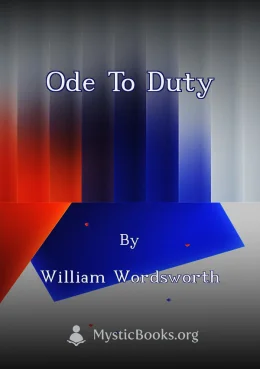
Ode To Duty
William Wordsworth's "Ode to Duty" is a powerful poem that explores the nature of moral obligation. The speaker, addressing Duty as a personified force, seeks guidance and strength in fulfilling their moral responsibilities. The poem is characterized...
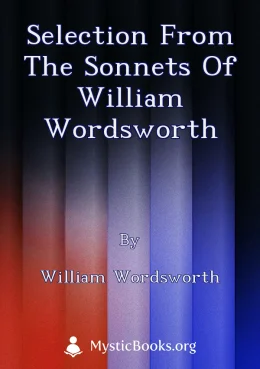
Selection from the Sonnets of William Wordsworth
This selection of William Wordsworth's sonnets showcases his deep appreciation for the natural world, his reflections on human relationships, and his insights into societal issues. The sonnets explore themes of love, friendship, conflict, history, th...